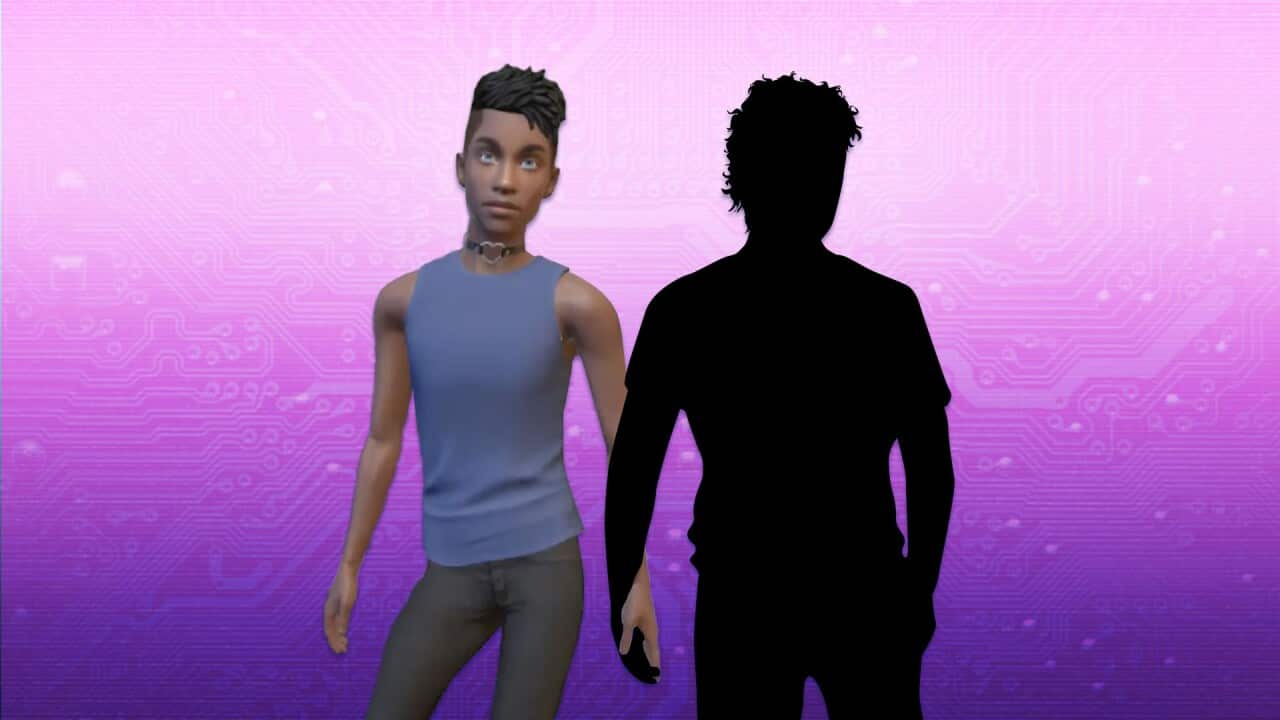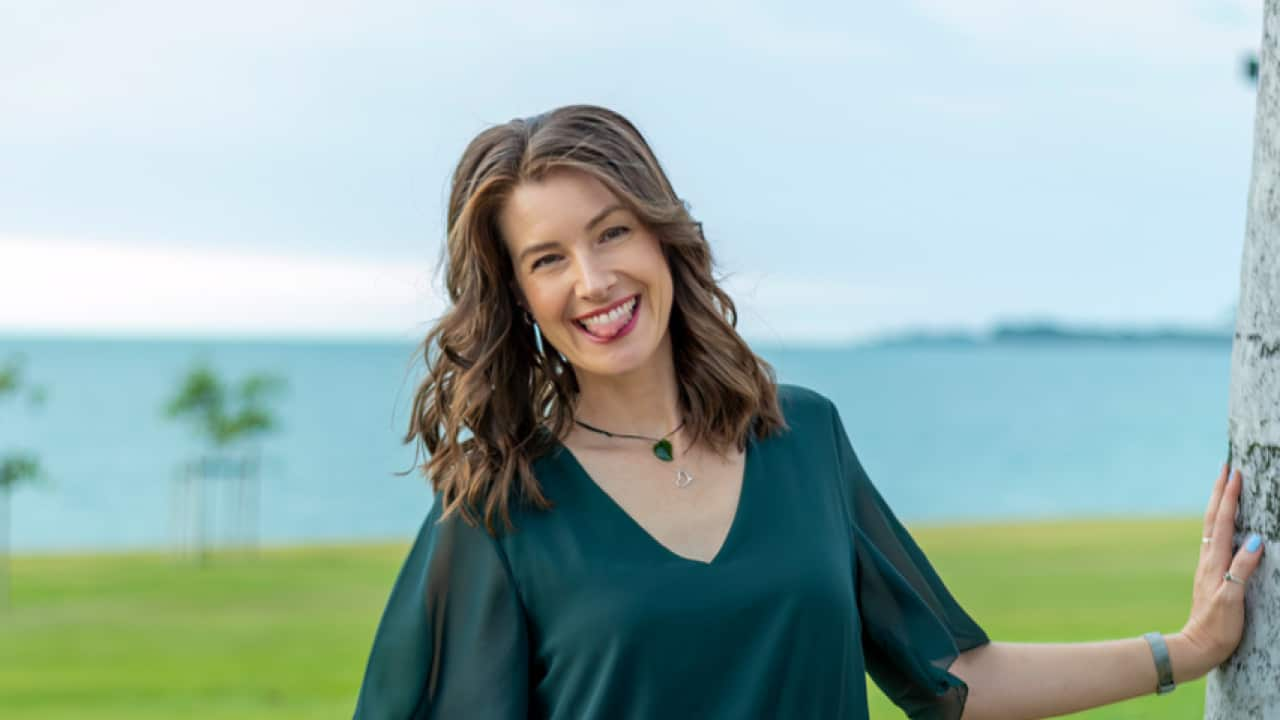Watch insight episode Married Young – on why some Australians are bucking the trend of marrying later in life and getting hitched in their early 20s – on
Stream free On Demand

Married Young
episode • Insight • Current Affairs • 52m
episode • Insight • Current Affairs • 52m
When Caroline Elisabeth Cull experienced a bad date some years ago, the night also revealed an unexpected silver lining. It gave them a deeper understanding of why they'd been feeling so "different".
There wasn't a problem with their date as such.
"He was a really nice person who treated me really well," Caroline told Insight.
And the lack of chemistry wasn't an issue either. In fact, the thought of being touched – by anyone, ever – made them panic.
But they weren't sure why.
"We'd gone to a movie and it was really far away from where I was staying, so I felt pressured to go back to his place. But the second he touched me in that way, I was suddenly not attracted to him anymore. It was a visceral reaction and I felt ill. I made him drive me home."
Caroline's strong reaction confirmed something they'd been suspecting.
"I had been trying to explore my palette, figure out my tastes and my preferences. And I just realised that I didn't have any."

Caroline says they've never looked at someone and felt sexually attracted to them. Source: Supplied
"It was a relief. I suddenly felt normal and it was a great feeling."
Caroline has discovered they are repulsed by sex and sexual touch.
"The idea of sex to me is awkward and uncomfortable, just like a prostate exam."
Attracted to personality
Throughout their teenage years in Perth, Caroline thought their lack of interest in sex meant they were a good Christian, having grown up for nearly two decades in the Pentecostal church.
"I was constantly sheltered in that life that I didn't really question it. In fact, I thought not having those temptations made me extra holy."

Caroline grew in a religious family in the Perth suburbs. Source: Supplied
They met new people, they shared houses with lesbians and transgender people, which was their "first real experience into queerness", and they started dating.
But it never felt quite right.
"I knew there was something different about me, but I could never put a name to it. I experience sexual repulsion, so when I'm watching TV and there's a sex scene, it makes me feel really uncomfortable. I love corny PG movies because there's no sex. It's just about people, their personalities and how they treat each other.
"My whole life, I've never looked at someone and thought, 'you look good, let's do the deed'. I would always just be attracted to someone's personality."
Caroline says they have "no clue" what triggers their repulsion to the idea of sex, but they feel their asexuality and apothisexuality (sex repulsion) "has always just been there".
"I've tried to figure it out. I have no problem with non-sexual touch, but I feel uncomfortable as soon as I feel their 'intention'. If someone tries to touch me in that way, it feels to me almost like a panic attack. It's like my mind knows my body wouldn't want it so it activates this superpower defence mechanism."
When they were dating in Melbourne, they pushed themselves once to have sex, just to test their reaction.
But it only cemented their feeling.
"It didn't go far. I was like, 'nope, nope, this is not for me, sorry'.
"It was a waste of time."
Hopes for a partner and family
While Caroline defines themselves as grey-asexual (or 'grey ace', meaning they feel limited sexual attraction) and aromantic, which means experiencing little or no romantic attraction either, they are still seeking emotional intimacy with a life partner, with no regard for gender.
"I look for queer-platonic relationships, I call it 'friends plus'. It's like a best friend, but you are there for life and you have kids and you get married and all the hoopla.
"Love for me was never about touching somebody's body, but their heart.
"The way a partner treats me and how they care for me, that's like sex to me. The way I care for people and love people is to make them tea when they're sad and console them. Emotional intimacy is huge for me."
They would also like to have a child one day, most likely through IVF or surrogacy.
But while they remain hopeful, they admit the reality of dating is tough. Given asexuals make up an estimated 1 per cent of the population, according to the Asexuality Visibility and Education Network, the dating pool is small.
"It's so heartbreaking to navigate because so many people who are the same as me aren't looking for kids, but also people who aren't me want to have sex to have a kid."
Asexuality as a positive
While Caroline has chosen to be open about their asexuality, they say misconceptions around it can be tiresome and hurtful for them and others in the community.
"People think we've decided to be asexual because we're unattractive or inexperienced, or as a result of sexual trauma, which mind you is still welcomed in the asexual community.
"Sometimes we're even accused of seeking diversity points, which is crazy because it doesn't make life easier, it makes life harder."
Love for me was never about touching somebody's body, but their heart.
Others think they can convert an asexual, they say.
"While I'm clear about my asexuality on dating app bios, I still get people swiping on me and then mansplaining asexuality to me and telling me that it's not real. They'll listen to my story then say, 'here's why that's wrong', which is so hurtful.
"People can't fathom not experiencing sexual attraction because sex is a huge and fundamental part of their lives.
"I wish people would just be more open-minded and listen more than they speak."
Caroline says in no way do they feel like they're 'missing out', another common misconception people have about asexuals.

Caroline believes asexuality has always been a part of them and views their orientation as "a positive". Source: Supplied
And five years on from that uncomfortable date night, Caroline is working to increase representation of asexual people.
They’re currently involved as a marketing producer for US feature film Dear Luke, Love Me, which showcases a queer-platonic bond over 10 years; in developing a narrative TV pilot Prism, which features an asexual pop-star navigating the hypersexuality of the Australian music industry; and on both a memoir and a poetry book about growing up asexual.
"If people feel connected to asexuality, I want them to feel welcomed. Your label allows you to communicate something differently, but it doesn't have to be permanent. So there's no pressure to get it perfect the first time around," they say.
"If you think that you might be asexual, welcome to the party."
And for more stories head to – a new podcast series from SBS, hosted by Kumi Taguchi. From sex and relationships to health, wealth, and grief Insightful offers deeper dives into the lives and first person stories of former guests from the acclaimed TV show, Insight.














